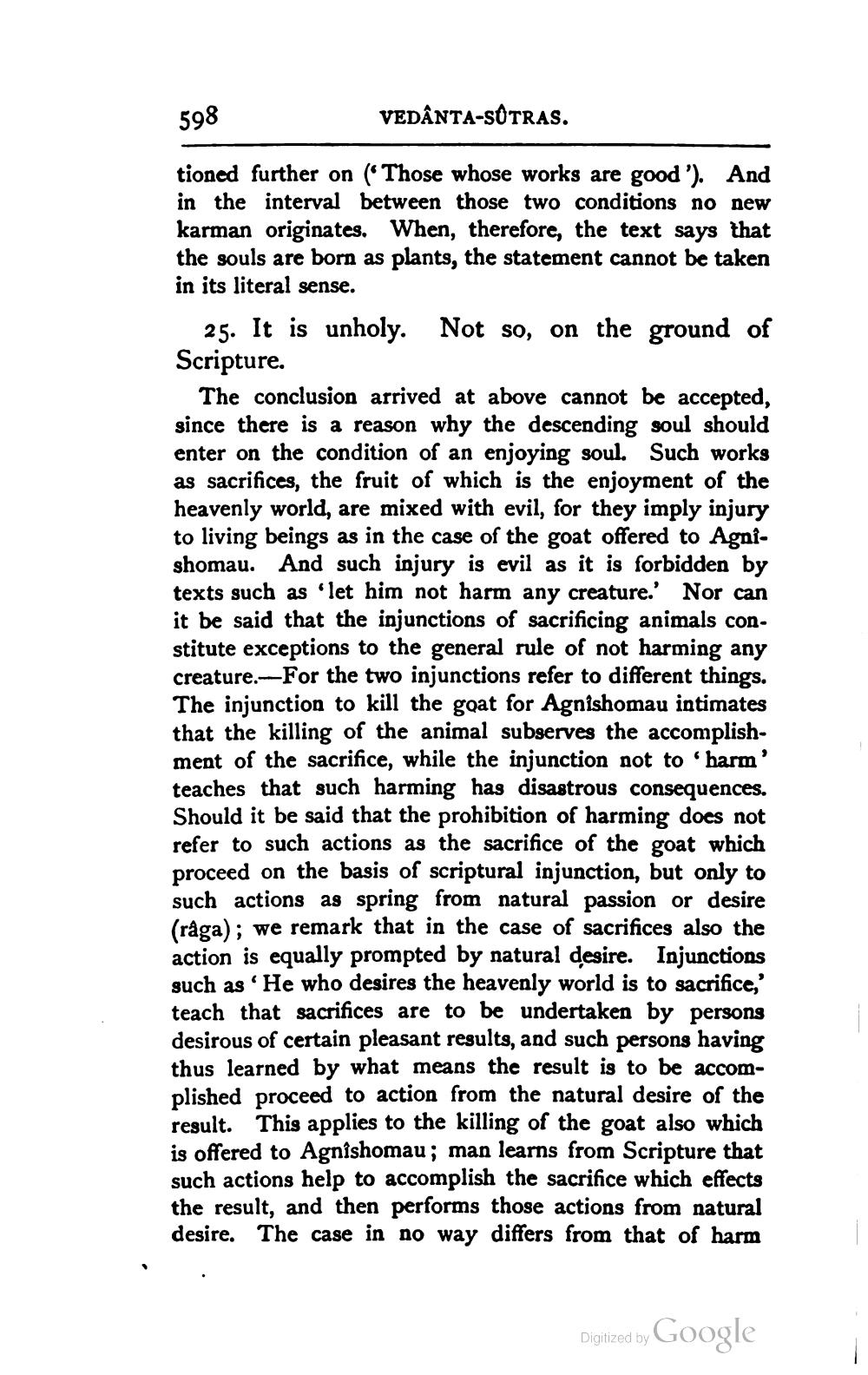________________
598
VEDÂNTA-SOTRAS.
tioned further on (Those whose works are good '). And in the interval between those two conditions no new karman originates. When, therefore, the text says that the souls are born as plants, the statement cannot be taken in its literal sense.
25. It is unholy. Not so, on the ground of Scripture.
The conclusion arrived at above cannot be accepted, since there is a reason why the descending soul should enter on the condition of an enjoying soul. Such works as sacrifices, the fruit of which is the enjoyment of the heavenly world, are mixed with evil, for they imply injury to living beings as in the case of the goat offered to Agnishomau. And such injury is evil as it is forbidden by texts such as 'let him not harm any creature.' Nor can it be said that the injunctions of sacrificing animals constitute exceptions to the general rule of not harming any creature.-For the two injunctions refer to different things. The injunction to kill the goat for Agnishomau intimates that the killing of the animal subserves the accomplishment of the sacrifice, while the injunction not to 'harm' teaches that such harming has disastrous consequences. Should it be said that the prohibition of harming does not refer to such actions as the sacrifice of the goat which proceed on the basis of scriptural injunction, but only to such actions as spring from natural passion or desire (râga); we remark that in the case of sacrifices also the action is equally prompted by natural desire. Injunctions such as 'He who desires the heavenly world is to sacrifice,' teach that sacrifices are to be undertaken by persons desirous of certain pleasant results, and such persons having thus learned by what means the result is to be accomplished proceed to action from the natural desire of the result. This applies to the killing of the goat also which is offered to Agnishomau; man learns from Scripture that such actions help to accomplish the sacrifice which effects the result, and then performs those actions from natural desire. The case in no way differs from that of harm
Digitized by
Digitized by Google




